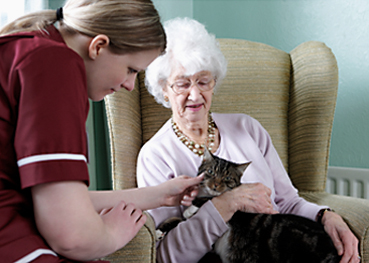
Certified nursing assistants and home health aides will continue to be in huge demand, but a lack of training and low pay could mean a labor crisis for nursing facilities, home health agencies and even hospitals, according to a joint report from Kaiser Health News and The Washington Post.
More than 3.2 million people work in direct care, and the number of jobs in the field is expected to skyrocket over the next seven years, according to PHI, an advocacy group for direct caregivers. But pressuring the labor pool are these facts: Personal health aides make an average salary of just $12,300, while nursing, psychiatric and home health aides earn an average of $19,000 annually. Almost a third of all direct-care workers are uninsured, and close to half rely on some form of public assistance for their families, be it food stamps or Medicaid.
Training requirements for these healthcare workers vary across the states, as do regulations for background checks and whether aides may administer medications, all circumstances, some advocates say, that could put patients in peril. With programs such as Money Follows the Person pushing for seniors to receiving Medicaid to remain at home, experts warn that more investment in personnel will be necessary to do it properly.
“My fear, my deep concern, is that in this quick switch [to provide care at home], there is the potential for care to get worse and for the direct-care workers’ job to get harder, with less support and training,” Peggy Powell, national director of curriculum and workforce development at PHI, told Kaiser Health News.




